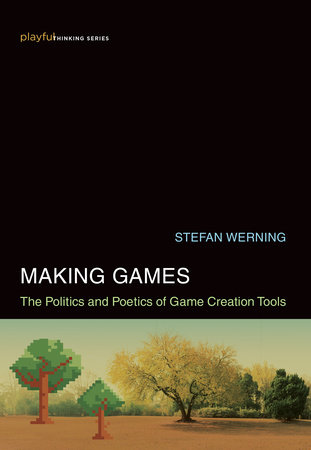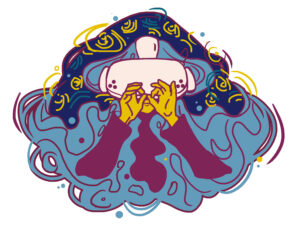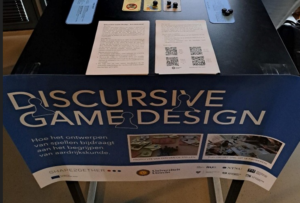
An argument that production tools shape the aesthetics and political economy of games as an expressive medium.
In Making Games, Stefan Werning considers the role of tools (primarily but not exclusively software), their design affordances, and the role they play as sociotechnical actors. Drawing on a wide variety of case studies, Werning argues that production tools shape the aesthetics and political economy of games as an expressive medium. He frames game-making as a (meta)game in itself and shows that tools, like games, have their own “procedural rhetoric” and should not always be conceived simply in terms of optimization and best practices.
Considering tools conceptually rather than examining the function of particular tools, Werning offers a new way to think about game development. He employs an expansive definition of tools, outlining four characteristics: tool use occurs all across the value chain of the digital games industry, not just in game creation; tools are manipulatable and shareable objects; tools shape the relationships between different stakeholders; and tools meaningfully frame the purpose for which they are intended. Werning develops this theoretical framework through a series of “tool essays” that reaffirm the direct connection between playing and making games, covering such topics as metaphors of control, tool fandom, playful appropriation of tools, worldbuilding, and the subversive use of character customization tools. Finally, he calls for evocative tool design, envisioning games not just as products but as a form of expression and reflection.
Table of Contents
Front Matter
On Thinking Playfully
Introduction
- Making Sense of Tools
- Tool Essays: From Tool Fandom and Aesthetic Ecosystems to the Evolution of Tool Affordances
- A Call for Evocative Tool Design: Game Creation as . . .
ISBN: 9780262361361



